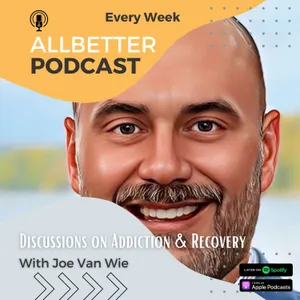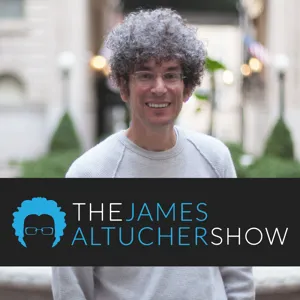Adam Zbegner is a father, husband, and intellectual in recovery. We became friends over twenty years ago from our involvement in a recovery community. We have spent many hours chatting, reviewing books, music, and playing Risk (The Game of Global Domination). Today we meet to discuss a book we decided to read and review this winter titled "The Case Against Reality" How Evolution hid the truth from our eyes by Donald D. Hoffman. See Links Below.
BOOK ON AMAZON:
https://www.amazon.com/s?i=stripbooks&rh=p_27%3ADonald+Hoffman&s=relevancerank&text=Donald+Hoffman&ref=dp_byline_sr_book_1
Can we trust our senses to tell us the truth?
Challenging leading scientific theories that claim that our senses report back objective reality, cognitive scientist Donald Hoffman argues that while we should take our perceptions seriously, we should not take them literally. How can it be possible that the world we see is not objective reality? And how can our senses be useful if they are not communicating the truth? Hoffman grapples with these questions and more over the course of this eye-opening work.
Ever since Homo sapiens walked the earth, natural selection has favored perception that hides the truth and guides us toward useful action, shaping our senses to keep us alive and reproducing. We observe a speeding car and do not walk in front of it; we see mold growing on bread and do not eat it. These impressions, though, are not objective reality. Just like a file icon on a desktop screen is a useful symbol rather than a genuine representation of what a computer file looks like, the objects we see every day are merely icons, allowing us to navigate the world safely and with ease.
The real-world implications for this discovery are huge. From examining why fashion designers create clothes that give the illusion of a more “attractive” body shape to studying how companies use color to elicit specific emotions in consumers, and even dismantling the very notion that spacetime is objective reality, The Case Against Reality dares us to question everything we thought we knew about the world we see.
DONALD D. HOFFMAN :
https://www.universityofcalifornia.edu/news/case-against-reality
Please stop by ApplePodcast and give us a Rating and Review!
Leaders Of Long Term Recovery in Pennsylvania
We combine proven recovery principles with new, innovative techniques to provide one of the most effective programs for young men in the country.
Discussions on addiction and recovery. We interview clinicians/researchers, legislators, and individuals that include a variety of means to recovery. Joe Van Wie is a father, husband, filmmaker, and reformed media consultant in recovery.
Fellowship House As a treatment center, Fellowship House offers both residential and outpatient treatment services to
allbetter.fm Discussions on addiction and recovery. We interview clinicians/researchers, legislators, and individ
Disclaimer: This post contains affiliate links. If you make a purchase, I may receive a commission at no extra cost to you.
Support the show
Stop by our Apple Podcast and drop a Review!
https://podcasts.apple.com/us/podcast/allbetter/id1592297425?see-all=reviews
Support The Show
https://www.patreon.com/allbetter















